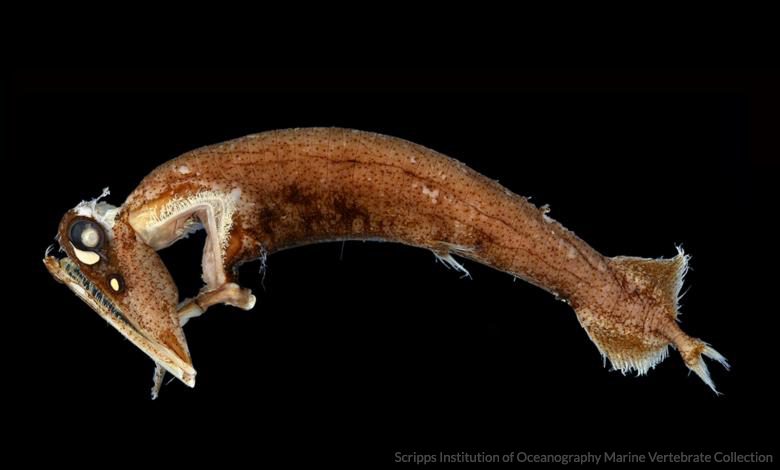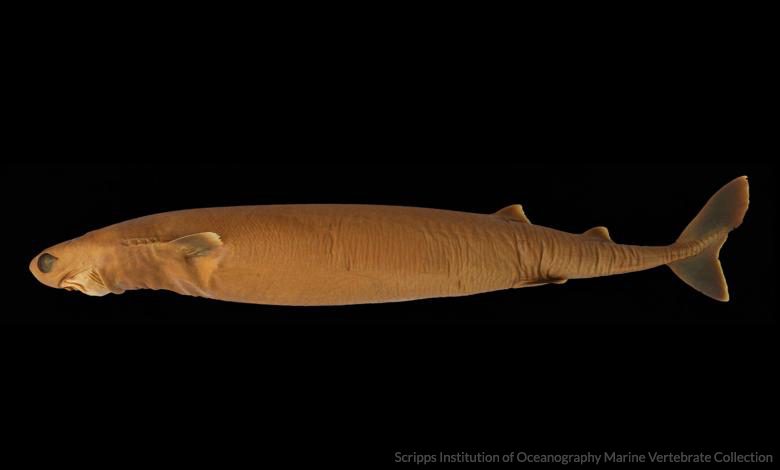October 29, 2019
Five spooky species that live under the sea
Estimated reading time: 0 minutes
This spooky season forget about ghosts and goblins, take a swim to get a real fright. Here are five spooky species that live under the sea:
Sarcastic fringehead
Male sarcastic fringeheads compete for females by opening their very large mouths in the direction of their rivals. When open, their mouths extend four times their normal size! Combined with their intimidating colouration, this isn’t a friendly looking species.
Vampire squid
When disturbed, the vampire squid inverts its cape, displaying large spines that line the underside of its arms. Though it’s actually quite harmless, with a scientific name that means “vampire squid from hell,” we’d rather not bother these little guys.
Stoplight loosejaw
The loosejaws are deep-sea predators that get their name from the fact that their jaws are seemingly hinged in multiple places, allowing them to be opened widely and to swing down and out in order to snare relatively large prey. Their mouth is not covered with skin, so these fish rely on their long, needle-like teeth to capture the prey and manipulate it for swallowing their meals whole. Yikes!

Mimic octopus
The mimic octopus is truly the ace of costumes. Many animals that can imitate only impersonate one species, but not this octopus. Mimics have a range of characters that they can make themselves look like, including lionfish and sea snakes.
Cookiecutter shark
Cute name, right? Wrong. These sharks get their common name from their feeding strategy of biting off small chunks of much larger animals, without killing them. They use sharp, pointed upper teeth to latch on to the skin of their prey and thick, strong, triangular lower teeth to scoop out a mouth-sized chunk of flesh. Several species – including bluefin tuna, great white sharks, spinner dolphins and other large predators – have been observed with one or more scars caused by these sharks.


